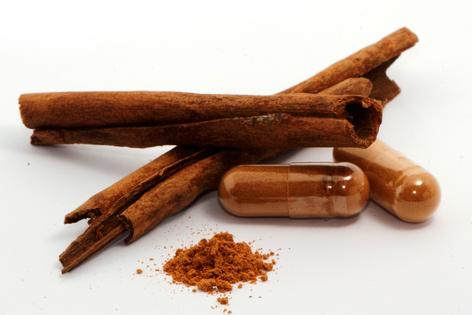Environmental Nutrition: Can supplements help tame blood sugar?
If you have prediabetes or have been diagnosed with Type 2 diabetes, you’re going to want to do everything possible to bring blood sugar levels down. Elevated levels can damage your eyes, kidneys, nerves, your dental health, and increase your risk of cardiovascular disease.
A diet high in fruits and vegetables, whole grains, legumes, beans, and plant proteins, along with regular physical activity, can go a long way to improving blood sugar levels, but if you’re thinking about adding supplements to the mix, there are a few things you should know.
Research
Vitamin, mineral, and herbal supplements have been studied for the treatment of diabetes, but most have little proof of safety and effectiveness. Herbal supplements, including bitter melon, Chinese herbal medicines, fenugreek, ginseng, and milk thistle have not been proven effective. A few supplements have, however, shown promise.
Cinnamon
Cassia cinnamon is possibly effective in lowering blood sugar but should only be used in moderation. Cinnamon spice in the supermarket often contains a combination of different types of cinnamon. Consumer Reports found that of 36 cinnamon spice products tested, 12 had high levels of lead. The National Institutes of Health says that doses below six grams a day of cassia cinnamon appear to be safe. Any more may interfere with medications, especially blood thinners.
Chromium
Without chromium, which is found in a variety of foods, including broccoli and eggs, your body can’t metabolize dietary sugars efficiently. A 2022 review found that chromium supplements improved fasting blood sugar levels and insulin resistance in people with Type 2 diabetes. The Institute of Medicine suggests that 200 micrograms a day for up to six months is safe.
Alpha-lipoic acid
ALA is an antioxidant that may reduce fasting blood sugar levels and improve insulin sensitivity in people with Type 2 diabetes. It may also be helpful in treating diabetic neuropathy (nerve damage to hands, legs, or feet). Studies have found 600 milligrams a day to be effective.
Bottom line
Never use supplements in place of medications for treating Type 2 diabetes. It’s important to remember that dietary supplements are not evaluated by the Food and Drug Administration for safety or effectiveness prior to being available to the public. Only if a serious problem occurs will a supplement be removed from the shelves. One source of reliable information on supplements is www.consumerlab.com.
(Environmental Nutrition is the award-winning independent newsletter written by nutrition experts dedicated to providing readers up-to-date, accurate information about health and nutrition in clear, concise English. For more information, visit www.environmentalnutrition.com.)
©2025 Belvoir Media Group, LLC. Distributed by Tribune Content Agency, LLC.











Comments